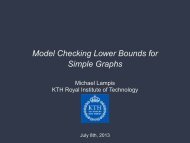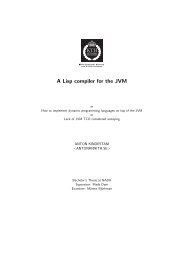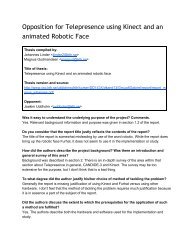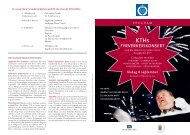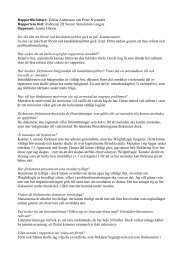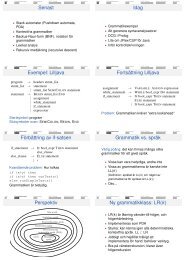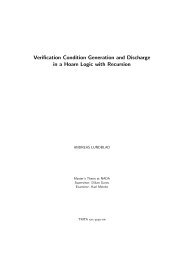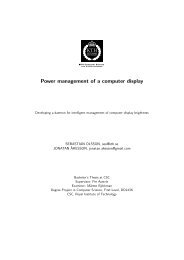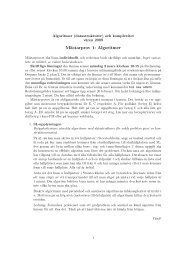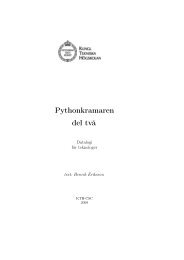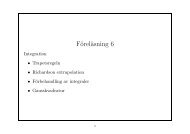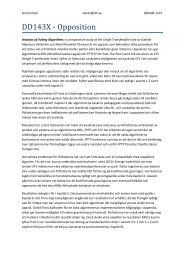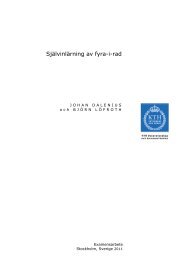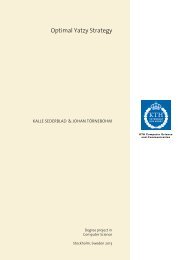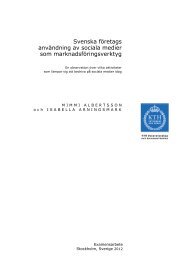Evaluation of Automatic Text Summarization - KTH
Evaluation of Automatic Text Summarization - KTH
Evaluation of Automatic Text Summarization - KTH
Create successful ePaper yourself
Turn your PDF publications into a flip-book with our unique Google optimized e-Paper software.
3.4. EVALUATION 43<br />
Location: Norden<br />
Organization: Telenor<br />
Time: onsdagen<br />
Keywords: Telenor; koncernchef; teleföretag; uppköp<br />
<br />
Figure 4. Question and Answer tagging scheme.<br />
3.4 <strong>Evaluation</strong><br />
Our information retrieval system uses traditional information retrieval techniques<br />
extended with stemming techniques and normalization <strong>of</strong> both the query and text.<br />
(The system can also be executed without using the stemming module).<br />
We used a rotating Questioning and Answering evaluation schema to avoid<br />
training effects <strong>of</strong> running the information retrieval system. Each <strong>of</strong> three users<br />
answered 33, 33 and 34 questions respectively with and without stemming functionality.<br />
The three users were not allowed to do more than five trials on each<br />
question to find the answer and were not allowed to use longer queries than five<br />
words. No background knowledge was allowed, which means that only the words<br />
used in the natural language question were allowed. Boolean expressions and phrase<br />
searches were allowed but rarely used.<br />
After going through all <strong>of</strong> the 100 questions and finding answers to these, that<br />
is 33 questions each, we rotated the work and we became evaluators <strong>of</strong> the previous<br />
persons’ answers assessing how many <strong>of</strong> the found top ten answers were correct and<br />
how many were wrong. Of the 100 questions, the test persons found 96 answers,<br />
2 questions did not give any answers at all and 2 other questions gave unreadable<br />
files. Each <strong>of</strong> the asked queries had an average length <strong>of</strong> 2.7 words. The texts<br />
containing the answer had an average length <strong>of</strong> 181 words. We found a 15 percent<br />
increase on precision on the first 10 hits for stemming compared to no stemming<br />
(see Table 1). We also compared with weighting the first hits higher than the last<br />
ones and we found no significant difference: 14 percent better with stemming and<br />
weighting. (We gave the first hit a weighting factor <strong>of</strong> 10 and the second hit a<br />
weighting factor <strong>of</strong> 9, decreasing the weighting factor until the last tenth hit giving<br />
it 1 and then we normalized everything to 1).



